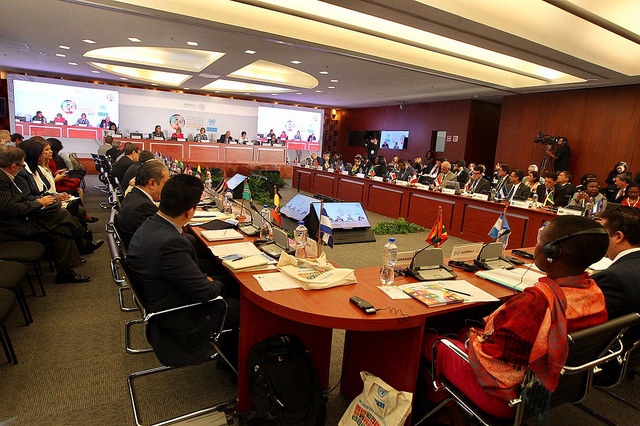News
At the Forum of Countries of Latin America and the Caribbean on Sustainable Development being held in Mexico City, from 26 to 28 April 2017, the Vice-Minister of Environment of Costa Rica, Patricia Madrigal, presented the developments of the negotiation process and highlighted its impacts on environmental governance and the protection of human rights.
“There is a shared conviction that public participation in government decision-making contributes to the achievement of significant impacts, as well as to generate creditability of the decision-making process and its results”, underscored the Vice-Minister. “Principle 10 redefines the traditional concept of development due to its inclusive, transparent and participatory nature.”
In her statement, the Vice-Minister also made reference to the link with the 2030 Sustainable Development Agenda. In this regard, she highlighted that Principle 10 of the Rio Declaration offers a clear vision on transparency, environmental justice and access to information as a basis for the strengthening of democracy and the correction of asymmetries. In addition, she said that participation and inclusion are fundamental for the prevention of socio-environmental conflicts. “We cannot aim for sustainable development without sustainable peace, political stability, respect of human rights and good governance,” she stated.
The co-chair of the process recognized the efforts of the countries to reach a regional agreement in 2017 and concluded that its adoption was an imperative for tackling the challenges of the 21st century.


